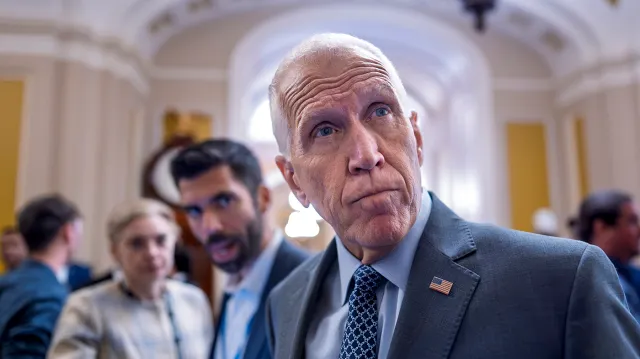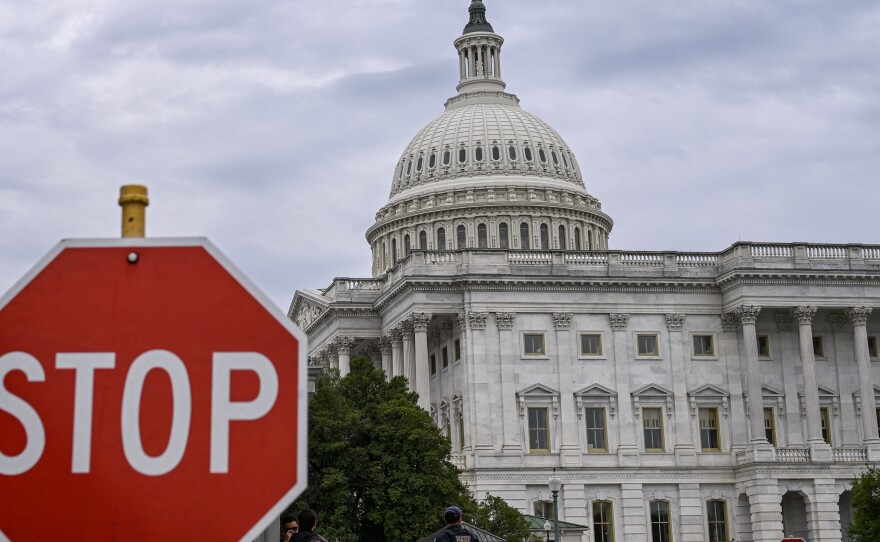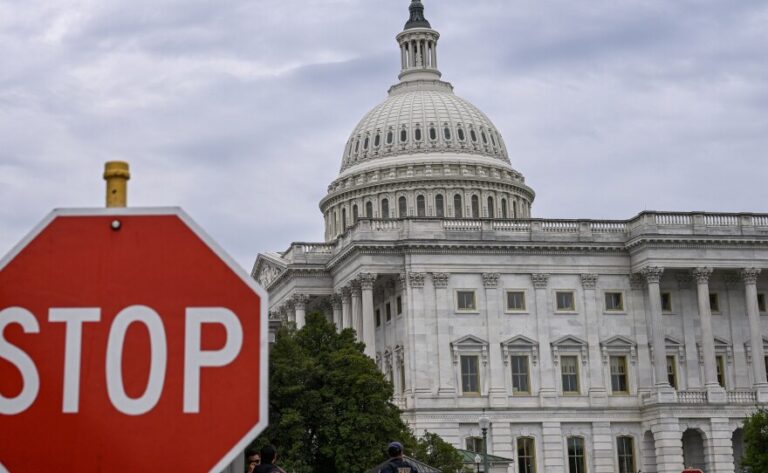Congressional Republicans are preparing to approve President Donald Trump’s $9.4 billion rescission package targeting foreign aid and public broadcasting, but several GOP lawmakers are expressing concerns about the administration’s use of this rarely employed budget tool that could set a precedent for future spending cuts.
The Senate passed the measure Thursday evening with a 51-50 vote, with Vice President JD Vance breaking the tie after three Republicans—Susan Collins of Maine, Lisa Murkowski of Alaska, and Mitch McConnell of Kentucky—joined Democrats in opposition. The package now heads to the House, where GOP leaders hope for swift passage before Friday’s deadline.
This marks the first time in decades that Congress appears poised to approve a presidential rescission request, which allows the president to freeze previously approved funding for 45 days while asking Congress to permanently cancel the spending authority.
GOP Concerns About the Process
While supporting the cuts in principle, several Republicans are warning about the implications of using rescissions too frequently. House Appropriations Committee Chair Tom Cole (R-Okla.) said Wednesday that while he has “no problem” voting for the current package, excessive use of the tool could “destroy a certain amount of goodwill that I think costs you down the road if you do it too much.”
“I understand the concern amongst appropriators on both sides of the aisle about it, but I just try to evaluate the packages as they come up,” Cole said. “These are legitimate tools. The executive branch is free to use them.”
The concerns reflect deeper anxieties about the balance of power between Congress and the executive branch, particularly regarding the constitutional “power of the purse” that belongs to the legislative branch.
What’s in the Rescission Package
The $9.4 billion package targets two main areas:
Foreign Aid Cuts ($8.3 billion)
- $900 million from programs combating HIV/AIDS, malaria, and other diseases
- $800 million from refugee assistance programs providing emergency shelter and sanitation
- $4.15 billion from economic development and democracy-building programs
- $496 million from humanitarian assistance for countries hit by disasters and conflicts
Public Broadcasting Cuts ($1.1 billion)
- Complete elimination of federal funding for the Corporation for Public Broadcasting for fiscal years 2026 and 2027
- Impacts over 1,500 local public radio and television stations nationwide
- Particularly affects rural communities where public broadcasting provides emergency alerts
Senate Modifications and Compromises
To secure enough votes for passage, Senate leaders made several modifications to the House-passed version. Most notably, they removed approximately $400 million in cuts to PEPFAR (President’s Emergency Plan for AIDS Relief), the George W. Bush-era program credited with saving millions of lives globally.
Senator Mike Rounds (R-S.D.) negotiated a compromise to redirect funding to tribal radio stations that rely heavily on federal support. “We wanted to make sure tribal broadcast services in South Dakota continued to operate which provide potentially lifesaving emergency alerts,” Rounds said.
However, Native Public Radio President Loris Taylor called the compromise “structurally impractical,” noting there’s “no clear path for redirecting these funds to Tribal broadcasters without significant legislative and administrative changes.”
Political Pressure and Threats
President Trump has been actively pressuring Republicans to support the package, warning on Truth Social that “Any Republican that votes to allow this monstrosity to continue broadcasting will not have my support or Endorsement.”
The political stakes became clear when Senator Thom Tillis (R-N.C.) announced he would not seek reelection after voting against advancing Trump’s broader tax and spending bill, following threats from the president to support a primary challenger.
House Speaker Mike Johnson (R-La.) urged the Senate to pass the House version without changes, but acknowledged uncertainty about whether Trump has the authority to fire Federal Reserve Chair Jerome Powell—another area where the administration is testing executive powers.
Broader Implications for Government Funding
What concerns many lawmakers is that this rescission package appears to be a test case. Office of Management and Budget Director Russell Vought has indicated that if successful, the administration plans to submit additional rescission requests in the coming months.
Senator Lisa Murkowski (R-Alaska) expressed broader concerns about the precedent: “It’s not that I don’t think we should be doing more to oversee our budget or bring spending levels down. But we also need to do more as legislators—as senators—when it comes to our own constitutional authority, the power of the purse.”
Democratic Opposition and Warnings
Democrats have uniformly opposed the package, with Senate Appropriations Vice Chair Patty Murray (D-Wash.) warning that approving these cuts would “gut the heart of compromise that this Committee is built around.”
“If we do not reject this rescissions package outright and seriously defend the authority of Congress and work of this Committee, we will find, very quickly, our bills become a lot less important, and our time is consumed by more and more rescissions packages to undo the work that we just wrapped up,” Murray said.
House Minority Leader Hakeem Jeffries (D-N.Y.) called the cuts “reckless,” arguing they would “undermine America’s national security” and hurt the nation’s ability to protect its citizens.
Impact on Communities
The cuts to public broadcasting have generated particular concern from lawmakers representing rural areas. Public radio and television stations in these communities often serve as the primary source for:
- Emergency weather alerts and disaster warnings
- Educational programming for children
- Local news coverage in “news deserts”
- High school sports coverage and community events
PBS warned that the cuts would have “devastating” effects, particularly on small stations that rely more heavily on federal funding than their urban counterparts.
Historical Context and Future Implications
The rescission process was created during the Nixon administration as part of the Congressional Budget and Impoundment Control Act of 1974. It was designed to give presidents limited authority to propose spending cuts while preserving Congress’s ultimate control over appropriations.
The last successful presidential rescission was in 1992 under President George H.W. Bush. The rarity of its use makes the current effort particularly significant as a precedent for future administrations.
As Congress faces the Friday midnight deadline, the debate highlights fundamental tensions about fiscal responsibility, executive power, and the role of government in supporting public services and international engagement. Whatever the outcome, the use of this rare budget tool signals a more aggressive approach by the Trump administration to reshape federal spending priorities outside the normal appropriations process.
The coming days will test whether Republican concerns about the precedent being set will outweigh their support for the specific cuts in question—and whether the narrow GOP majorities in both chambers can hold together under pressure from both the White House and their constituents.














